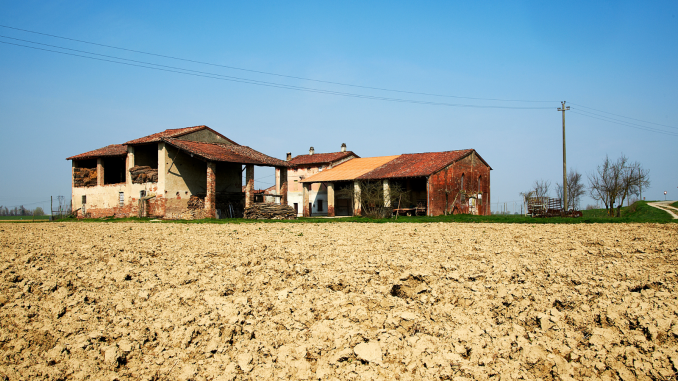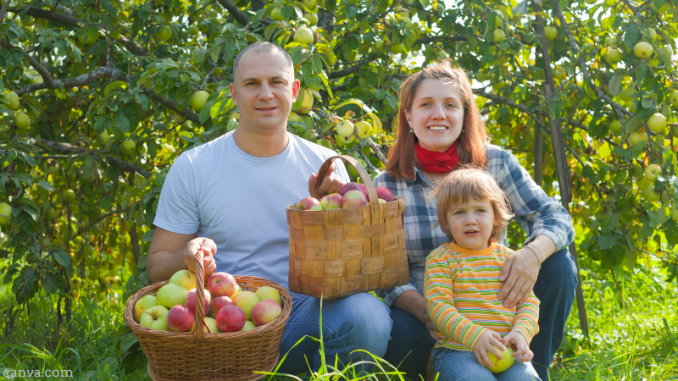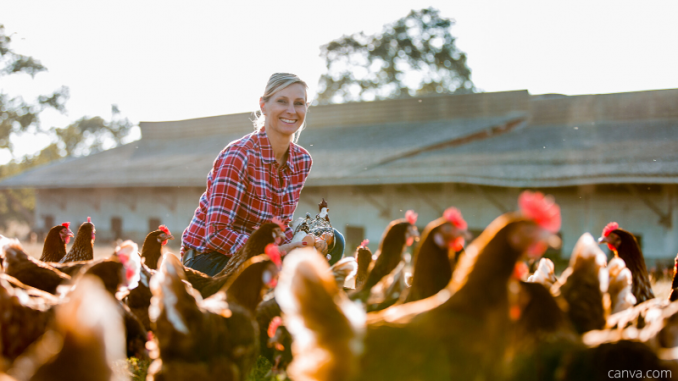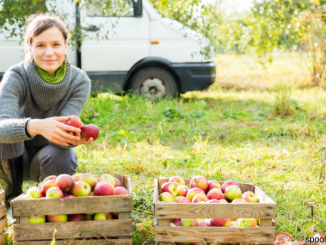 What do young farmers think of CAP reform so far? In this email interview, Alessia Musumarra, Secretary General of the European Council of Young Farmers (CEJA), acknowledges some wins in the European Parliament, identifies where more ambition is needed, and lays out what CEJA hopes to see from the trilogues.
What do young farmers think of CAP reform so far? In this email interview, Alessia Musumarra, Secretary General of the European Council of Young Farmers (CEJA), acknowledges some wins in the European Parliament, identifies where more ambition is needed, and lays out what CEJA hopes to see from the trilogues.
Which articles are you most pleased with? Are there amendments you wanted adopted, which weren’t?
Amendment 1159 was at the core of CEJA’s challenges for this CAP reform. We do believe doubling the minimum allocation dedicated to young farmers in the first pillar will ensure that most relevant instruments to the generational renewal objective are backed with appropriate means. It would, for example, increase the availability of budget for, and therefore accessibility to, installation aid. There were additional adopted amendments that constitute, from the young farmer’s perspective, non-neglectable advancements or guarantees – in particular in the CAP Strategic Plans Regulation:
- Article 4.1(d): the definition of ‘active farmer’ adopted by the European Parliament is, by all means, more comprehensive than it used to be. Furthermore, it doesn’t only remain a definition, since the principle of distributing CAP instruments to active farmers only is proactively defended in various articles (Articles 16.1, 17.3, 22.3, 24.1, 28.2, 29.1, 34.1, 66.2, 70.2). This is highly contrasting with the Council’s stand;
- Article 4.1(e): the Parliament decides to take a stand, in the definition of ‘young farmer’, on the necessity for Member States to align criteria in terms of ‘appropriate training and/or skills’. The Council, on its side, has introduced much more flexibility to it. Additionally, a definition of ‘new farmer’ is put forward, with the advantage to bring further clarity to all (4.1 e a (new));
- Article 27: as mentioned above and in line with CEJA’s advocacy, 4% minimum of national envelopes for direct payments shall be granted to the complementary income support for young farmers and installation aid in MEPs’ view. The article also opens the possibility to distribute the complementary income support in the form of a lump sum, providing an alternative to the traditional decoupled payment per eligible hectare;
- Articles 27.3(c) and 69.2(a): the Parliament introduces new provisions ensuring that young farmers don’t lose access to the complementary income support and installation aid when belonging to groups of farmers, producer organisations or cooperatives. The objective behind these is also to facilitate young farmers’ engagement with these groups, at the core of the organisation of our sectors. In Article 69.1, a provision also gets Member States to grant installation aid for the incorporation of young farmers into existing businesses;
- Article 65.10: in relation to environmental, climate and other management commitments (AECMs), it is said that appropriate training must be made available for those who require it, as well as access to expertise. In Article 72.6b(new), the principle of quality of educational and advisory services is defended: bodies providing knowledge transfer and innovation shall have the appropriate capacities in the form of staff qualifications and training to carry out that task;
- Article 103.2(5): in the SWOT analysis conducted by Member States for the specific objective dedicated to young farmers, the capacity of young farmers to cope with risks should be analysed (on top of the three aspects already aligned).
Amendment 1108, which was not adopted, laid down a non-backsliding clause for young farmers’ instruments, constraining Member States not to lower their ambition on that front in comparison to the programming period 2014-2020. We believe it could have been a further guarantee, in a context where a higher budgetary allocation is not certain to be taken on board by Member States.

Are your colleagues around Europe concerned about the impact on the family farming model of changes, such as amendment 163, which will make degressivity voluntary, but changing “shall” into “may”?
CEJA agrees in principle with capping but doesn’t have any specific position on it. Of course, as young people involved or willing to be involved in the sector, we do have concerns on the future of family farming, as it certainly reflects in our advocacy. We welcome the ambition shown on generational renewal instruments, because we believe it is now crucial to step up our collective action for the development and maintaining of resilient and sustainable activities for our sector. In return, the outcomes would be positive for our environmental and climate-related ambition.
That being said, by several aspects, we don’t believe the reform that is being conducted at the moment will constitute a game changer for all economic, social and environmental challenges the sector faces. For example, we would have hoped, from both co-legislators, further reflection on risk management tools, which we perceive not only as an important economic and social feature, but also as an essential instrument in the ambition we carry on the fronts of environment and climate action. In both assemblies, risk management tools are made voluntary for Member States. This is not in line with CEJA’s position, where we can testify of what it is like to evolve in the agricultural sector with a high-risk profile.
Also for the Council meeting last week, what of their consolidated position do you welcome, and what concerns you?
We have raised several concerns related to the Council’s position, in particular related to a lack of budgetary ambition. It is particularly true for young farmers’ instruments: the Council keeps a 2% minimum financial allocation in the first pillar, but adds investment support to the package. As CEJA, we also want to see investment support guaranteed with adequate funding, but with such a low figure, we don’t see how Member States will be encouraged in that path. Our other concerns are related to a high degree of flexibility Member States are given, whether it is in the definition of active farmer, young farmer, or even in the alignment of risk management tools.

What more needs to be done in trilogues, or in CAP Strategic Plans stage?
In the trilogues, we expect co-legislators to agree with a minimum allocation of 4% of national envelopes for direct payments targeted at the complementary income support, installation aid, and investment support for young farmers. We would also push for the principle of active farmer to be more strongly acknowledged by the Council, with the inclusion of definition as much as possible aligned on the one from the Parliament. More guarantee has to be laid down on the channelling of CAP funds; in this view, some provisions of the Horizontal Regulation should allow to better detect frauds.
However a lot will be required from our perspective at the CAP Strategic Plans stage. We have to ensure what is in the basic acts is feasible at farm level, notably in terms of administrative costs. For young farmers, many instruments of interest are often overlooked, such as cooperation measures which allow schemes like the Land Mobility Service in Ireland to be put into place. All measures related to advisory services, knowledge and education, or risk management, are of primary importance as well. Last but not least, it will be essential to look at the interplay with national instruments, making sure that young farmers’ challenges are also tackled within coherent strategies. Thus, on the front of land access, or access to credit and investment, a lot remains to be done.
More on CAP Reform
Withdraw the CAP to Safeguard European Green Deal – 27 Organisations
A Rural Proofed CAP post 2020? – Analysis of the European Parliament’s Position
CAP Beyond the EU: The Case of Honduran Banana Supply Chains
Eco-Scheming | Council Adopts a CAP Position of no Ecological Substance
Parliament Plenary – Here’s the Amendments to Vote for and Against
Billions for CAP as an “extinction machine” – Farm to Fork Derailed
Parliament – Big Three Political Groups Try to Scupper CAP Eco-Schemes
Commission Proposes Four Flagship Eco-schemes – ARC2020 analysis




